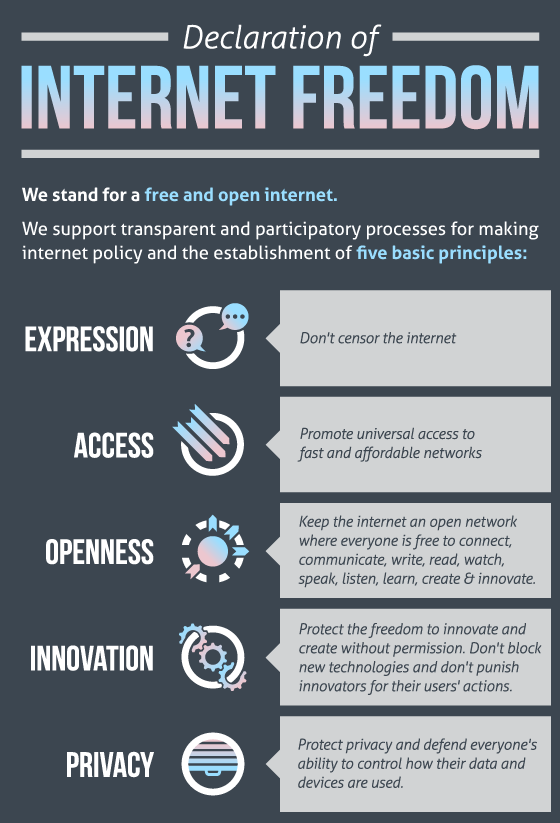We believe that a free and open Internet can bring about a better world. But to keep the Internet free and open, we must promote these principles in every country, every industry and every community. And we believe that these freedoms will bring about more creativity, more innovation and a better society
We are joining an international movement to defend our freedoms because we believe that they are worth fighting for.
Let’s discuss these principles — agree or disagree with them, debate them, translate them, make them your own and broaden the discussion with your community — as only the Internet can make possible.
Join us in keeping the Internet free and open.
Below, we have posted each of these original principles as a separate item so that you can vote them up and down here on the Step2 platform, comment on them, discuss them, provide feedback, etc. You can also add your own principles if you feel that anything in particular is missing. We look forward to your feedback and insights.
